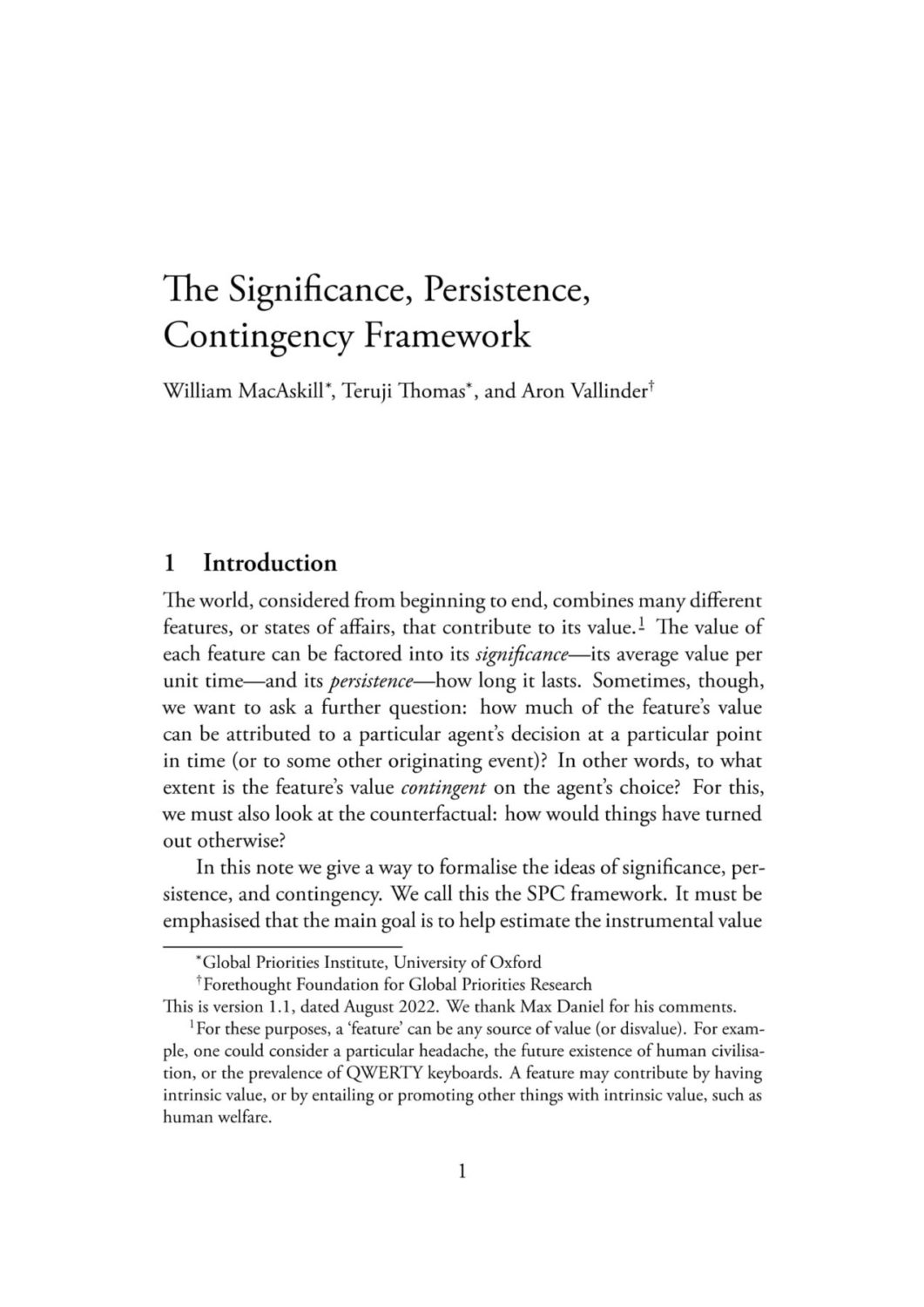The Significance, Persistence, Contingency Framework
William MacAskill, Teruji Thomas (Global Priorities Institute, University of Oxford) and Aron Vallinder (Forethought Foundation for Global Priorities Institute)
GPI Technical Report No. T1-2022
The world, considered from beginning to end, combines many different features, or states of affairs, that contribute to its value. The value of each feature can be factored into its significance—its average value per unit time—and its persistence—how long it lasts. Sometimes, though, we want to ask a further question: how much of the feature’s value can be attributed to a particular agent’s decision at a particular point in time (or to some other originating event)? In other words, to what extent is the feature’s value contingent on the agent’s choice? For this, we must also look at the counterfactual: how would things have turned out otherwise?
Other working papers
Crying wolf: Warning about societal risks can be reputationally risky – Lucius Caviola (Global Priorities Institute, University of Oxford) et al.
Society relies on expert warnings about large-scale risks like pandemics and natural disasters. Across ten studies (N = 5,342), we demonstrate people’s reluctance to warn about unlikely but large-scale risks because they are concerned about being blamed for being wrong. In particular, warners anticipate that if the risk doesn’t occur, they will be perceived as overly alarmist and responsible for wasting societal resources. This phenomenon appears in the context of natural, technological, and financial risks…
The end of economic growth? Unintended consequences of a declining population – Charles I. Jones (Stanford University)
In many models, economic growth is driven by people discovering new ideas. These models typically assume either a constant or growing population. However, in high income countries today, fertility is already below its replacement rate: women are having fewer than two children on average. It is a distinct possibility — highlighted in the recent book, Empty Planet — that global population will decline rather than stabilize in the long run. …
Intergenerational experimentation and catastrophic risk – Fikri Pitsuwan (Center of Economic Research, ETH Zurich)
I study an intergenerational game in which each generation experiments on a risky technology that provides private benefits, but may also cause a temporary catastrophe. I find a folk-theorem-type result on which there is a continuum of equilibria. Compared to the socially optimal level, some equilibria exhibit too much, while others too little, experimentation. The reason is that the payoff externality causes preemptive experimentation, while the informational externality leads to more caution…

